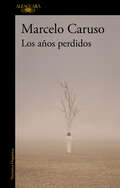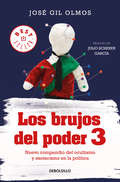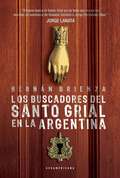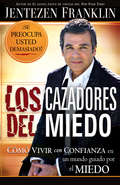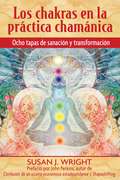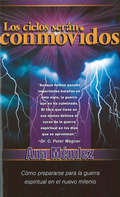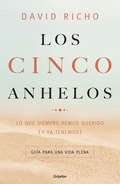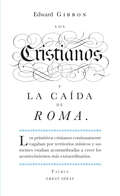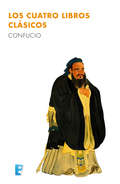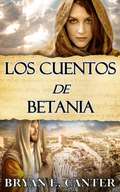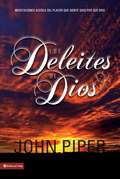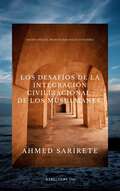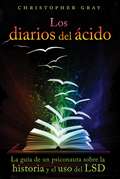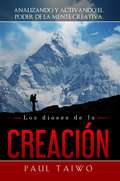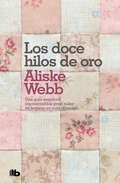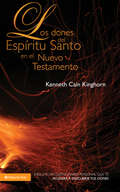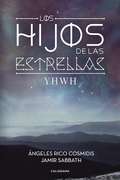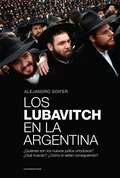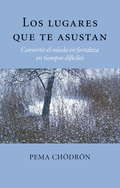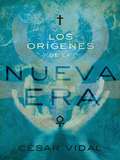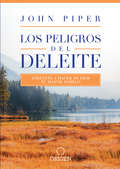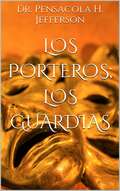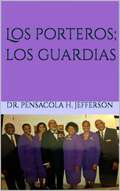- Table View
- List View
Los años perdidos
by Marcelo CarusoLa nueva novela del ganador del Premio Clarín 2019. Un libro que cuenta los años en los que Jesús vive en el desierto a la búsqueda de su destino. «¿Debía creerlo? ¿Yo era la Luz del Mundo? ¿Había dejado de ser el huérfano para ser el Hijo? ¿Ese Hijo?». En los primeros años de nuestra era, Galilea es un territorio martirizado por el Imperio romano, enrarecido por la magia y cruzado por las voces de los que se proclaman elegidos y anuncian la llegada del Mesías. En un polvoriento pueblo de pastores, un joven de veinticuatro años sabe que no es hijo del padre de sus hermanos. Su madre no alcanza a responder su pregunta o no puede hacerlo. Atendiendo al llamado de la voz del silencio, Jesús abandona su casa y toma el camino del desierto. Su partida es un viaje de autoconocimiento y de tentaciones, de voces que le hablan y de señales confusas. Conoce pescadores, ladrones, sacerdotes, mujeres y hombres sufrientes, sin encontrar la única respuesta que necesita: ¿quién es su padre? Y en su búsqueda, recibirá la verdadera y definitiva revelación que signará su vida y cambiará el mundo. Los años perdidos es la nueva e imponente novela de Marcelo Caruso, ganador del Premio Clarín 2019. Al margen del canon, con un profundo conocimiento de la época, Caruso aborda los años perdidos, aquellos en los que Jesús es todavía un hombre en busca de su destino. Sobre Negro el dolor del mundo: «Marcelo Caruso da muestras de un oficio al que el tiempo parece haberle añadido una poderosa naturalidad. Su prosa parece alejarse de todo artificio y, en esa búsqueda, encuentra tanto su concentración poética como su espesura».José María Brindisi, La Nación Dijo el Jurado del Premio Clarín de Novela: «Una novela tan inesperada como fascinante que recrea los entresijos del poder y la persistencia de la discriminación en nuestro tiempo. Con una escritura sinuosa, por momentos deslumbrante, nos pone de frente a un mundo que, por lejano que pudiese parecer, se convierte en un espejo del nuestro».Jorge Volpi «Recreación admirable de un período, el siglo XVIII, y un conflicto, la esclavitud, casi inéditos en nuestra literatura, esta novela nos lleva a sumergirnos como en un vértigo en la lectura y a ir descubriendo que nos encontramos ante una obra excepcional».Liliana Heker «Un mágico y peligroso viaje a la Buenos Aires colonial y al universo ignorado de la esclavitud. Una aventura llena de situaciones límites, con un protagonista inolvidable y un gran pulso narrativo».Jorge Fernández Díaz
Los brujos del poder 3: Nuevo compendio del ocultismo y esoterismo en la política (Los brujos del poder #Volumen 3)
by José Gil OlmosLa relación entre políticos y brujos se remonta hasta el origen mismo de diversas sociedades alrededor del mundo. México no es una excepción y, tal como documenta José Gil Olmos, la serie de gobernantes proclives al susurro de la magia es larga. Las razones originales han cambiado desde el tiempo de reyes y reinas, emperadores, dictadores y señores feudales, pero incluso hoy los presidentes, gobernadores, mandos militares y hasta políticos menores acuden a pedir ayuda y protección a brujos, espíritus y chamanes. Figuras como Evo Morales, Hugo Chávez, Enrique Peña Nieto o Andrés Manuel López Obrador no sólo ambicionan ver el futuro, sino que aspiran a eliminar a sus oponentes o a volverse intocables durante su ejercicio público del poder. No desean ser legitimados, porque eso lo hace la democracia: quieren ser invencibles bajo el manto de lo sobrenatural. Prólogo de Julio Scherer García
Los buscadores del santo grial en la Argentina
by Hernán BrienzaCon un pie en la historia y otro en la literatura, Brienza relata lacrónica de su investigación acerca del destino del Santo Grial. Muchoscreen que está en la Argentina, y ¿por qué no habría de estarlo? «Esta es la historia de una búsqueda. Perdón, no es la historia de unabúsqueda. Es la historia de una persecución. Y, como sucede en el amor oen los viajes, el destino final es una excusa para recorrer el caminoque nos lleva a él. Todo el mundo sabe que entre las hendijas de BuenosAires hay otra Buenos Aires donde viven matemáticos jubilados, viejasbailarinas de cabaret, hermanos que no se dirigen la palabra,coleccionistas, entomólogos y parroquianos de los bares de la zona. Aesos pasillos fue Brienza a preguntar. A esa clase de ángeles locos vio.Brienza camina con soltura la cornisa entre la literatura y elperiodismo. Y en su décimo tercer libro busca el Santo Grial, en un tonoque evoca las novelas de aventuras de Osvaldo Soriano o Jorge FernándezDíaz. Por favor, que a nadie se le ocurra preguntar por qué el SantoGrial no podría estar en la Argentina. Sería una de nuestras posesionesmenos curiosas. Brienza busca la copa que contuvo la sangre de Jesús enla Última Cena entre nazis conjurados, sucuchos de anticuarios de lacalle Defensa, extraviados de Capilla del Monte y monjes tibetanos queguían telepáticamente a uno de sus testigos hasta el valle de Punilla.Como la vida es una cadena causal "pregúntenle, si no, a Santo Tomás deAquino" los ovillos de Brienza están llenos de puntas que se confundenen nudos y más puntas. Hasta que se aburre de su rol de dandy divertidodetrás de una leyenda, y advierte: "Hubo un punto de inflexión en estahistoria en el que nada fue igual que antes. Todo comenzó a dejar de sersolo un juego. ¿Y, si en realidad, estoy buscando verdaderamente elSanto Grial?". No me diga que no quiere saber si lo encontró».
Los cazadores del miedo: Cómo vivir con confianza en un mundo guiado por el miedo
by Jentezen Franklin¿Qué es lo más que teme en la vida? ¿El crimen? ¿Las enfermedades? ¿La pérdida de empleo? ¿El fracaso? El temor tiene la habilidad engañosa de influenciar y afectar nuestra vida diaria, robarnos el gozo, la paz y hasta nuestro futuro. Mas no tiene que ser de esa manera. Dios nos ha dicho que no necesitamos vivir una vida definida por el temor. Los cazadores del miedo le ayuda a identificar y derrotar la fuente misma del temor en su vida, al mostrarle el arsenal que Dios tiene de armas divinas; sus cazadores del miedo. Usted aprenderá a usar estas armas, a vivir con confianza en cada área de su vida, incluyendo: - Las finanzas - La fe - Las relaciones - La salud "Porque no nos ha dado Dios espíritu de cobardía, sino de poder, de amor y de dominio propio". - 2 Timoteo 1:7
Los chakras en la práctica chamánica: Ocho etapas de sanación y transformación
by John Perkins Susan J. WrightCómo trabajar con los centros de los chakras a fin de curar lesiones psíquicas no resueltas • Revela cómo las lesiones síquicas se quedan atrapadas en el cuerpo energético. • Establece un vínculo entre cada etapa de desarrollo y cada uno de los chakras principales. • Presenta una guía detallada sobre la sanación y eliminación de tensiones contenidas en cada chakra. El sistema de los chakras identifica ocho centros en la anatomía psicológica de los seres humanos, cada uno de los cuales está asociado con una parte distinta del cuerpo físico o energético. Susan J. Wright, que se dedica al chamanismo y la psicoterapia Gestalt, muestra que cada chakra está también vinculado con una etapa distinta de desarrollo emocional y espiritual. Wright explica que los traumas de la vida experimentados en etapas particulares del desarrollo se quedan atrapados dentro del cuerpo energético porque se aferran a su chakra correspondiente. Al identificar el chakra afectado y trabajar con él, es posible abrir una puerta a un mundo de imágenes transformativas, lo que permite sanar estas heridas psíquicas mediante potentes técnicas chamánicas. La autora presenta ejercicios físicos y meditaciones guiadas que ofrecen a quienes las practican una manera de unir y robustecer las partes fragmentadas de su cuerpo, y emprender así el camino hacia el bienestar físico, emocional y espiritual.
Los cielos serán conmovidos: Cómo prepararse para la guerra espiritual en el nuevo milenio
by Ana MendezEste libro enseña cómo prepararse para la guerra espiritual en el nuevo milenio. Además descubrirá: cómo recibir el manto profético; las armas en batalla territoral; cómo edifica el diablo sus fortalezas en los aires y cómo derribarlas; cómo vencer siempre; las diferentes estructuras en el reino de las tinieblas; cómo hacer a los ángeles tus aliados de guerra; cómo evitar errores peligrosos; cómo diseñar una estrategia de batalla territorial; y las experiencias de guerra que cambiaron el curso de las naciones.
Los cinco anhelos: Lo que siempre hemos querido (y ya tenemos): Guía para una vida plena
by David Richo¿Por qué pensamos que estamos incompletos, que somos infelices o que tenemos un vacío en nuestro interior? Richo nos invita a echar un vistazo muy íntimo a varias facetas del ser humano para explicar por qué siempre tenemos ese «anhelo» de tener más, ya sea amor, felicidad, libertad, madurez o significado de nuestra existencia. Este libro es un recorrido por cada uno de los «cinco anhelos» para ver cómo es que podemos conocernos a través de ellos en el camino hacia la plenitud. ¿Quién no ha querido sentirse más amado, feliz, libre, inteligente o maduro? David Richo aborda estas ansias, siempre insatisfechas, de manera crítica, y explica la forma en la que suelen despertarse en nuestras vidas. La búsqueda de significado, por ejemplo, proviene del amor en nuestra infancia; nuestro espíritu de libertad despierta cuando sentimos que nos controlan, y el crecimiento viene de nuestro interés por permanecer estimulados. En Los cinco anhelos, los cuestionamientos e ideas que el autor comparte no sólo te harán reflexionar acerca de tu propia vida, también te ayudarán a entender que esos deseos de «más» son precisamente los que nos constituyen como seres humanos.
Los cristianos y la caída de Roma (Serie Great Ideas #Volumen 22)
by Edward GibbonIdeas que han cambiado el mundo. A lo largo de la historia, algunos libros han cambiado el mundo. Han transformado la manera en que nos vemos a nosotros mismos y a los demás. Han inspirado el debate, la discordia, la guerra y la revolución. Han iluminado, indignado, provocado y consolado. Han enriquecido vidas, y también las han destruido. Taurus publica las obras de los grandes pensadores, pioneros, radicales y visionarios cuyas ideas sacudieron la civilización y nos impulsaron a ser quienes somos. La descripción subversiva e iconoclasta que Gibbon realizó del ascenso del cristianismo suscitó la más encendida indignación cuando vio la luz a finales del siglo XVIII y continúa siendo una de las más elocuentes e irrefutables críticas de la naturaleza engañosa de la fe. Comentarios sobre la colección Great Ideas:«De veras que la edición es primorosa y pocas veces contenido y continente pueden encontrarse mejor ensamblados y unidos. ¡Qué portadas! Para enmarcar. [...] Ante las Great Ideas, solo cabe quitarse el sombrero. ¡Chapeau!»ABC «Taurus propone un doble envite con este lanzamiento. Por un lado aumenta su compromiso con el ensayo; por otro, recupera el gusto por la estética. A los volúmenes se les ha proporcionado una portada delicada y cuidada (copian el original británico) que invita a la lectura.»La Razón «Un fenómeno editorial.»The Guardian «Aparte de los contenidos, en general muy bien elegidos, son tan bonitos que si los ven seguro que cae alguno.»El País «Ideas revolucionarias, crónicas de exploraciones, pensamientos radicales... vuelven a la vida en estas cuidadísimas ediciones, muy atractivas para nuevos lectores.»Mujer Hoy «Grandes ideas bien envueltas. De Cicerón a Darwin, esta colección entra por los ojos.»Rolling Stone «Original y bella iniciativa la emprendida por Taurus con su colección Great Ideas.»Cambio 16 «Hay libros inmortales, libros únicos que contienen pensamientos y reflexiones capaces de cambiar el mundo, tesoros en miniatura reagrupados en la colección Great Ideas.»Diario de León
Los cuatro libros clásicos
by ConfucioLos cuatro libros clásicos del confucianismo. Confucio fue el creador de un sistema basado en la filosofía práctica orientada hacia el perfeccionamiento de uno mismo. En Los cuatro libros clásicos se recogen los textos de la literatura china seleccionados como fundamentos del confucianismo, un sistema filosófico aún vigente: Gran Saber, Doctrina de la medianía, Analectas de Confucio y Mencio.
Los cuentos de Betania: Cuatro Historias Entrelazadas de Recuperación y Esperanza
by Bryan E. CanterUna mujer joven, explusada por su padre y rechazada por su familia, deambula por las calles de Jerusalén... ... vendiendo su cuerpo para sobrevivir en una ciudad despiadada que no tiene piedad por los oprimidos. Cuando un hombre le promete un modo de vida diferente, ella supera sus dudas y le abre su corazón. Un extraño llamado Jesús salva a María de la muerte, y ella se convierte en una seguidora devota. Él la ayuda a liberarse de una vida de prostitución, y viajan a su pueblo natal de Betania para buscar reconciliarse con su familia. Su hermano Lázaro acepta con alegría su regreso, pero su hermana y su tío dejan muy en claro que ella no es bienvenida ahí. Frente al rechazo de su hermana y el orgullo crítico de su tío, María cuestiona el perdón de Dios y lucha por perdonarse a sí misma. Sin embargo incluso cuando sus vidas se entrelazan y chocan, los mismos que se apresuran a condenarla, luchan con sus propios demonios internos -ineptitud, arrogancia, y la necesidad de ganar el favor de Dios. ¿Estas actitudes destrozarán a su familia para siempre, o puede un carpintero de Nazaret abrir sus ojos incrédulos y mostrarles la maravilla de la verdadera fe?
Los deleites de Dios: Meditaciones acerca del placer que siente Dios por ser Dios
by John Piper«Realmente no se conoce a nadie hasta que no se sabe qué lo hace feliz». En un ameno paseo teológico, el pastor John Piper navega por las evidencias bíblicas para ayudarnos a ver y sentir lo que los deleites de Dios nos muestran sobre él, para que así podamos llegar a ser más como aquel que amamos. Lo que la iglesia y el mundo necesitan hoy más que nada es conocer y amar al grandioso, glorioso, soberano y alegre Dios de la Biblia.
Los desafíos de la integración civilizacional de los musulmanes
by Ahmed SarireteDado que el mundo se interesa cada vez más a los comportamientos de los musulmanes, y que todas las miradas desconfiadas apuntan sobre el origen de su cultura que es el islam, este ensayo está destinado en primer lugar a los musulmanes para darles nuevos elementos de reflexión para que puedan revisar su visión del mundo al mismo tiempo que su verdadero papel esperado en el concierto de las naciones. Como también está destinado a cualquiera, que muestre un interés a la cultura de la fe y al islam en particular, con el fin de aclarar e invitarle a más comprensión, y a la vez cambiar su actitud de desconfianza hacia la gente de esta nación de fe.
Los diarios del ácido: La guía de un psiconauta sobre la historia y el uso del LSD
by Christopher GrayUna exploración sobre las verdades personales y espirituales reveladas mediante el LSD • Indica que las visiones inducidas por el LSD tejen una trama continua de un viaje a otro • Muestra que los viajes o trances psicodélicos pasan por tres etapas: los temas personales y la conciencia prenatal, la pérdida del ego y, por último, lo sagrado • Explora el consumo de sustancias psicodélicas a lo largo de la historia, incluidas las alucinaciones masivas comunes en la Edad Media y los primeros usos terapéuticos del LSD Antes de llegar a los sesenta años, Christopher Gray experimentó un viaje psicodélico con una dosis de LSD de 100 microgramos. Los efectos fueron tan extraordinarios y sorprendentemente agradables, que comenzó a tomar la misma dosis de la misma forma (en la intimidad y a solas) una vez cada dos o tres semanas durante tres años. En Los diarios del ácido, Gray relata su sorpresa al darse cuenta de que sus visiones tejían una trama continua de una experiencia psicodélica a otra, pasando por tres etapas: la primera, que trata sobre los temas personales y la conciencia prenatal; la segunda, sobre la pérdida del ego, a menudo con toques de lo sobrenatural; y la tercera, sobre aspectos sagrados y espirituales. Los diarios del ácido pone de relieve el potencial del LSD desde el punto de vista del crecimiento transpersonal y el desarrollo espiritual.
Los diez mandamientos de la ética
by Gabriel ChalitaLa ética ocupa un lugar central en las preocupaciones de la humanidad desde, por lo menos, la antigua Grecia, cuna del debate filosófico. El gran Aristóteles fue uno de los primeros en plasmar su esencia en un tratado dirigido a su hijo Nicómaco. A partir de entonces, la ética se adueñó de un espacio de reflexión que se renueva constantemente al compás de los cambios históricos. Hoy, Gabriel Chalita actualiza y pone de relieve sus aspectos fundamentales evadiendo el terreno de la abstracción filosófica para centrarse en situaciones extraídas de la vida cotidiana. Hacer el bien, actuar con moderación, saber elegir, practicar las virtudes, vivir la justicia, valerse de la razón y valerse del corazón, ser amigo, cultivar el amor, ser feliz. Este verdadero recorrido en pos de la superación humana es lo opuesto a un catálogo de recetas. Cada uno de estos mandamientos debe ser entendido como una invitación a la reflexión sobre uno mismo y, a partir de allí, sobre el mundo y las personas que nos rodean, porque todo lo que hay de más importante en nuestra vida se construye en la convivencia y por medio de ella. En el comienzo y en el fin de ese camino se destacan con nitidez el bien y la felicidad, que constituyen los valores y objetivos fundamentales de nuestra búsqueda.
Los dioses de la Creación.: Analizando y activando el poder de la mente creativa
by Paul TaiwoHay varios tipos de inteligencia, como la inteligencia emocional, la inteligencia lingüística, la inteligencia analítica, etc. En este libro, Paul Taiwo se centra en la inteligencia creativa. Dios creó a cada ser humano para que fuera como Él, para traer algo desde adentro (invisible) hacia afuera (visto). Podría ser una idea, un concepto, un producto, un servicio, un movimiento o de otro modo. La creatividad no es solo una habilidad que reside en nosotros; es una responsabilidad que debemos asumir continuamente. La creatividad es lo que marca la diferencia entre quienes hacen que las cosas sucedan y quienes las ven. Como productos del poder creativo de Dios, debemos explorar y explotar nuestra inteligencia creativa dada por Dios para nuestro beneficio y para el beneficio de toda la humanidad. Paul Taiwo escribió esta guía práctica y sencilla para ayudar a los lectores a comprender el concepto de creatividad, sus procesos y cómo poner a trabajar sus mentes creativas.
Los doce hilos de oro
by Aliske WebbUna guía espiritual imprescindible para miles de lectores en todo el mundo. Jennifer ha terminado los estudios de Empresariales y aspira a convertirse en una rica agente de bolsa. Su hermana Susan es una adolescente que sueña con ser una buena maestra. Angela, la madre de ambas, solo espera encontrar la fórmula para que los consejos que da a sus hijas no suenen a monsergas. Por suerte, las tres cuentan con la abuela Alice, una viejecita que se dedica a coser magníficas colchas aprovechando humildes retales de vida, y demuestra a las chicas cómo se construye una vida de valores sólidos y duraderos que garanticen el éxito y el bienestar. Sus palabras son simples pero calan hondo, porque en ellas encontramos ese sentido común que creíamos sepultado por las urgencias pasajeras. Aliske webb recurrió en un principio a la autoedición de Los doce hilos de oro, pero la sabiduría de sus consejos le deparó un éxito mundial inesperado. Hoy, este libro se ha convertido en una guía espiritual para miles de personas.
Los dones del Espíritu Santo en el Nuevo Testamento
by Kenneth C. KinghornEste estudio bíblico sobre los dones del Espíritu Santo en el Nuevo Testamento busca unir a los cristianos, no separarlos; incrementar nuestra dependencia de Cristo, no disminuirla; animar a una mayor variedad entre los cristianos, no a más de lo mismo; y promover la humildad, no la vanidad. Este libro te ayudará a entender, descubrir y utilizar tus dones espirituales.
Los hijos de las estrellas
by Ángles Rico Cosmidis Jamir SabbathEn este gran libro descubriremos que somos hijos de las estrellas. Hace miles de años atrás nació en Uz un varón fiel, un elegido de Dios, un verdadero guerrero del universo que vino a la Tierra. <P><P>Su nombre era Job. Satanás, con sus fauces viperinas, deseaba inocular la oscuridad en el universo para destruirlo y de paso a Job. En el proceso de la prueba, le ocurrieron varios desastres, como pérdidas materiales y familiares, que le llevarán al límite. Sintió el temblor de su mente. <P><P>No obstante, Job siguió fielmente adorando a Yahveh, a pesar de que sus seres amados trataran de debilitarlo, dañarlo, destruirlo. Pero Dios mantuvo fuerte a Job, lo sacó de la prueba y lo bendijo. No en balde, él era un profeta, cuyo trono se encontraba erguido desde antes del nacimiento de la Tierra. <P><P>Los escritores de este libro, Jamir Sabbath y Ángeles Rico, experimentaron grandes pruebas en sus cuerpos para lograr entender el sufrimiento de Dios, pruebas de las que salieron victoriosos, bendecidos, más sabios. Jehová los sacó de la prueba y los bendijo y frente a las pruebas dijeron: «Bendito sea El Nombre de Yahveh Dios. Amen».
Los lubavitch en la Argentina: ¿Quiénes son los nuevos judíos ortodoxos? ¿Qué buscan? ¿Cómo lo están consiguien
by Alejandro SoiferLos Lubavitch son la corriente ortodoxa de mayor crecimiento en losúltimos años. Con una mirada honesta y desprejuiciada, Alejandro Soiferrevela los objetivos y los métodos de este grupo, sus modernasestrategias de marketing y de cooptación de seguidores, sus vínculos conlos sectores más poderosos del país. «Te lavan el cerebro», «trafican drogas», «son una secta», «se hacenricos de la noche a la mañana», «seducen a los adolescentes con viajes aEstados Unidos». Por lo bajo, es mucho lo que se dice de los Lubavitch.Pero ¿quiénes son realmente estos judíos ortodoxos de sobretodo negro ybarbas largas, cada día más visibles en distintos ámbitos de todo elpaís?En apenas treinta años, Jabad Lubavitch vivió una expansión fenomenal:pasó a tener a lo largo de la Argentina 33 centros comunitarios, 16escuelas, instituciones educativas no formales, fundaciones deasistencia social, una editorial, 700 empleados y cientos devoluntarios. El movimiento llega hoy a unas 45 mil personas, un cuartode la población judía local. En una época en la que la prácticareligiosa tiene cada vez menos peso, los Lubavitch son la corrienteortodoxa de mayor crecimiento en los últimos años.Una crónica atrapante de cómo funciona por dentro un movimiento quedespierta fascinación y al que muchos consideran fanáticos, pero que díatras día atrae más jóvenes a sus filas.
Los lugares que te asustan (The Places That Scare You): Convertir el miedo en fortaleza en tiempos difíciles
by Pema ChodronPema Chödrön nos enseña que siempre tenemos la oportunidad de elegir: podemos permitir que las circunstancias de nuestras vidas nos endurezcan y nos hagan cada vez más resentidos y temerosos, o podemos dejar que nos ablanden y nos hagan más benevolentes. Aquí Pema nos da las herramientas para lidiar con los problemas y dificultades que la vida nos depara. Ella nos enseña que esta sabiduría siempre está a nuestra disposición, pero generalmente la bloqueamos con patrones habituales arraigados en el temor. Más allá de este temor, yace un estado de generosidad y ternura. Este libro nos enseña a despertar nuestra bondad fundamental y a conectarnos con otros, a aceptarnos nosotros mismos y a los demás íntegramente, con fallas e imperfecciones, y a mantenernos en el momento presente al advertir las estrategias del ego que provocan que nos resistamos a aceptar la vida tal como ésta es.We always have a choice, Pema Chödrön teaches: we can let the circumstances of our lives harden us and make us increasingly resentful and afraid, or we can let them soften us and make us kinder. Here Pema provides the tools to deal with the problems and difficulties that life throws our way. This wisdom is always available to us, she teaches, but we usually block it with habitual patterns rooted in fear. Beyond that fear lies a state of openheartedness and tenderness.This book teaches us how to awaken our basic goodness and connect with others, to accept ourselves and others complete with faults and imperfections, and to stay in the present moment by seeing through the strategies of ego that cause us to resist life as it is.
Los mensajes de los sabios
by Brian L. WeissEn Muchas vidas, muchos maestros, Brian Weiss abrió una puerta inesperada al asombroso mundo de las regresiones a otras existencias. En Lazos de amor nos mostró que todos tenemos almas en otras vidas que esperan reunirse con nosotros hoy en día. Ahora, ahondando en el conocimiento de los Sabios, los guías espirituales que dan forma a nuestros destinos, Brian Weiss nos hace conocedores de su mayor logro hasta el momento. Nos revela que el amor es la fuerza esencial de la vida y del universo y cuáles son sus capacidades curativas, creadoras y nos enseña a controlar su increíble poder. En este libro leerán los testimonios íntimos y sorprendentes del milagroso potencial del amor. Se internarán en lo que sucede después de la muerte, aprenderán estrategias para combatir la ansiedad y curarse de los estragos que pueden causar algunas relaciones, y se afirmarán en la confianza de uno mismo.
Los orígenes de la Nueva Era
by Cesar VidalCésar Vidal desenmascara las doctrinas ocultas del movimiento de laNueva Era en esta obra bien documentada.La Nueva Era no es un movimiento aparecido de la nada en elsiglo veinte. Su ideología y práctica se originan en la Gnosis. Durante el sigloprimero A.D. se asistió a unvigoroso crecimiento de esta filosofía que manifestaba la pretensiónde guardar en su seno el mensaje auténtico de Jesús. Frente a él se alzó unconjunto de personajes que veían a la Gnosis como una perversión del mensajecristiano y a su "Cristo" como "otro Cristo", radicalmentedistinto del histórico. Para ellos, la Gnosis era un enemigo peligroso quedebía ser abatido.Partiendo de los documentos históricos, Los orígenes de la Nueva Era relata lapugna colosal en la que se enfrentaron dos cosmovisiones diametralmente opuestas,la neotestamentaria y la gnóstica.Las consecuencias de esta pugna resultan visibles, incluso en nuestros días, enel desarrollo e ideología de la Nueva Era.
Los peligros del deleite (Grandes Verdades Ser.)
by John PiperEn esta entretenida síntesis de su obra más trascendental, Sed de Dios, John Piper revela cómo el deleite en Dios es lo único que puede transformar una vida llena de deseos insatisfechos a una vida de gozo rebosante. Este libro puntual, escrito a partir de su clásico Sed de Dios, John Piper enfatiza la importancia de fortalecer una relación personal con el Creador a través del deleite en Él y en su creación. La atrapante ideología del autor, denominada #Hedonismo Cristiano#, se presenta aquí en una extensión considerable que le permitirá absorber conceptos y ponerlos en práctica de manera rápida, llevándolo a una experiencia de fe radicalmente nueva y llena de gozo. Este mensaje transformador, cargado de razones bíblicas para vivir una vida de celebración, le ayudará a descubrir cómo y por qué deleitarse por completo en Dios.
Los porteros; los guardias
by DR Pensacola H JeffersonUn PROCESO, de cualquier tipo, implica una secuencia de acciones o movimientos que efectúan cambios hacia adelante. “… Y en el PROCESO del tiempo, ACABÓ DE PASAR…” (Génesis 4: 3 KJV). Estos cambios de avance pueden ser una sucesión de actividades gradual, rápida, extremadamente lenta o constante. Independientemente de lo rápido o lento que sea el PROCESO; SIEMPRE es una secuencia continua de acciones o movimientos con un propósito definido y un resultado final. “… A través de este PROCESO el sacerdote te purificará de tu pecado, HACIENDO JUSTICIA con el Señor, y serás perdonado…” (Levítico 5:10 NTV). PROCESO tiene como objetivo mover o llevar a cabo cosas o individuos hacia adelante y la secuencia de acciones o movimientos a menudo parece inexistente o prácticamente invisible. “… Andad POR FE…” (2 Corintios 5: 7 KJV). La secuencia de acciones o movimientos, en un PROCESO, son tareas o procedimientos individuales que TODOS se vinculan para producir una meta o alcanzar un resultado final. “… Luego debe bañarse con agua en un lugar sagrado, (SIGUIENTE) ponerse sus ropas regulares, y (SIGUIENTE) salir a sacrificar un holocausto para él y un holocausto para el pueblo. A través de este PROCESO, se purificará a sí mismo y a la gente, haciéndolos justos con el Señor… ”. (Levítico 16:24 NLT). El PROCESO de secuencias y acciones se trata de una cosa o posiblemente un individuo QUE SE ALTERA a través de esta procesión de movimientos hacia adelante. “… A través de este PROCESO, HIZO santo el altar purificándolo…” (Levítico 8: 5 NTV). Eventualmente, PROCESS producirá un resultado después de un cierto período de tiempo. “… Y en el PROCESO del tiempo“ ACABÓ ”A PASAR…” (Génesis 4: 3 KJV). Además, PROCESO es una secuencia de acciones y movimientos que requieren una cierta cantidad de tiempo y tareas o procedimientos particulares que trabajan juntos
Los porteros; los guardias
by DR Pensacola H. JeffersonUn PROCESO, de cualquier tipo, implica una secuencia de acciones o movimientos que efectúan cambios hacia adelante. “… Y en el PROCESO del tiempo, ACABÓ DE PASAR…” (Génesis 4: 3 KJV). Estos cambios de avance pueden ser una sucesión de actividades gradual, rápida, extremadamente lenta o constante. Independientemente de lo rápido o lento que sea el PROCESO; SIEMPRE es una secuencia continua de acciones o movimientos con un propósito definido y un resultado final. “… A través de este PROCESO el sacerdote te purificará de tu pecado, HACIENDO JUSTICIA con el Señor, y serás perdonado…” (Levítico 5:10 NTV). PROCESO tiene como objetivo mover o llevar cosas o individuos hacia adelante y la secuencia de acciones o movimientos a menudo parece inexistente o prácticamente invisible. “… Andad POR FE…” (2 Corintios 5: 7 KJV). La secuencia de acciones o movimientos, en un PROCESO, son tareas o procedimientos individuales que TODOS se vinculan para producir una meta o alcanzar un resultado final. “… Luego debe bañarse con agua en un lugar sagrado, (SIGUIENTE) ponerse sus ropas regulares, y (SIGUIENTE) salir a sacrificar un holocausto para él y un holocausto para el pueblo. A través de este PROCESO, se purificará a sí mismo y a la gente, haciéndolos justos con el Señor… ”. (Levítico 16:24 NLT). El PROCESO de secuencias y acciones se trata de una cosa o posiblemente un individuo QUE SE ALTERA a través de esta procesión de movimientos hacia adelante. “… A través de este PROCESO, HIZO santo el altar purificándolo…” (Levítico 8: 5 NTV). Eventualmente, PROCESS producirá un resultado después de un cierto período de tiempo. “… Y en el PROCESO del tiempo“ ACABÓ ”A PASAR…” (Génesis 4: 3 KJV). Además, PROCESO es una secuencia de acciones y movimientos que requieren una cierta cantidad de tiempo y tareas o procedimientos particulares que trabajan juntos.�
